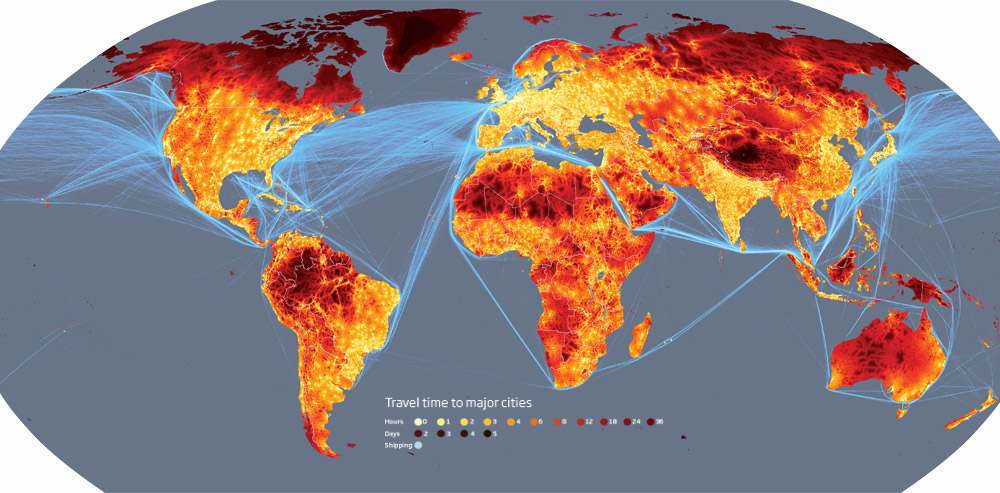Tuesday, November 08, 2011
designing genomes from scratch will be the next revolution in biology.
By
CNu
at
November 08, 2011
1 comments
![]()
tinkering with life
By
CNu
at
November 08, 2011
0
comments
![]()
Labels: Genetic Omni Determinism GOD , What Now?
Monday, November 07, 2011
chomsky: if it cannot justify itself, then it should be dismantled
By
CNu
at
November 07, 2011
16
comments
![]()
Labels: common sense , truth
efforts to push creative collaboration might actually clog the wheels
By
CNu
at
November 07, 2011
0
comments
![]()
Labels: corporatism , egregores
evolution during human colonizations
By
CNu
at
November 07, 2011
0
comments
![]()
Labels: History's Mysteries , What IT DO Shawty...
what distinguishes you humans from the other animals?
Mental time travel and theory of mind are recursive ways of thinking. King goes on to write, "During mental time travel, an experience that we've had in the past or that we imagine for ourselves in the future is 'inserted into [our] present consciousness'. Similarly, in theory of mind, we insert what we believe to be someone else's state of mind into our own."
So, how do Corballis's ideas hold up given what we know about the behavior and cognitive capacities of animals?
By
CNu
at
November 07, 2011
2
comments
![]()
Labels: What IT DO Shawty...
Sunday, November 06, 2011
it yields no economic return
By
CNu
at
November 06, 2011
9
comments
![]()
Labels: common sense , relationship management
"Ya gotta put something ON the table, before you can put your feet UNDER the table."
Video - WGBH documentary Riding the Rails
By
CNu
at
November 06, 2011
0
comments
![]()
Labels: American Original , Collapse Casualties
most u.s. unemployed no longer receive benefits
By
CNu
at
November 06, 2011
0
comments
![]()
Labels: Collapse Casualties , reality casualties
in six days: connecticut community resiliency failing on an epic scale...,
Video - CP&L CEO answers kwestins...,
By
CNu
at
November 06, 2011
8
comments
![]()
Labels: Collapse Casualties , FAIL
stand up chicago shows how it's done!!!
Video - Wisconsin Koch Bros sockpuppet Scott Walker gets MIC checked in Chicago.
By
CNu
at
November 06, 2011
8
comments
![]()
Labels: micro-insurgencies , People Centric Leadership
how much of the global economy is useless friction?
By
CNu
at
November 06, 2011
1 comments
![]()
Labels: common sense , truth
Saturday, November 05, 2011
roman catholic church's pedophile investigator jailed for possessing thousands of child porn images
By
CNu
at
November 05, 2011
1 comments
![]()
Labels: psychopathocracy
that cop in oakland who injured scott olson was trying to kill somebody...,
By
CNu
at
November 05, 2011
6
comments
![]()
Labels: psychopathocracy
speaking of debt collection and debt collectors...,
By
CNu
at
November 05, 2011
0
comments
![]()
Labels: Livestock Management , psychopathocracy
twits tweeting telling on themselves...,
By
CNu
at
November 05, 2011
1 comments
![]()
Labels: facebook IS evil
Friday, November 04, 2011
democracy incompatible with debt collection
By
CNu
at
November 04, 2011
7
comments
![]()
Labels: Peak Capitalism , The Hardline
the corzine wall st. ag holder vampire squid gangster bankster backstory
By
CNu
at
November 04, 2011
6
comments
![]()
Labels: Obamamandian Imperative
greek governance exceedingly fluid about now...,
Video - Greek military and police had joined riots earlier this summer.
* General Ioannis Giagkos, chief of the Greek National Defence General Staff, to be replaced by Lieutenant General Michalis Kostarakos
* Lieutenant General Fragkos Fragkoulis, chief of the Greek Army General Staff, to be replaced by lieutenant general Konstantinos Zazias
* Lieutenant General Vasilios Klokozas, chief of the Greek Air Force, to be replaced by air marshal Antonis Tsantirakis
* Vice-Admiral Dimitrios Elefsiniotis, chief of the Greek Navy General Staff, to be replaced by Rear-Admiral Kosmas Christidis
By
CNu
at
November 04, 2011
0
comments
![]()
Labels: complications , governance
Leaving Labels Aside For A Moment - Netanyahu's Reality Is A Moral Abomination
This video will be watched in schools and Universities for generations to come, when people will ask the question: did we know what was real...
-
theatlantic | The Ku Klux Klan, Ronald Reagan, and, for most of its history, the NRA all worked to control guns. The Founding Fathers...
-
Video - John Marco Allegro in an interview with Van Kooten & De Bie. TSMATC | Describing the growth of the mushroom ( boletos), P...
-
Farmer Scrub | We've just completed one full year of weighing and recording everything we harvest from the yard. I've uploaded a s...













